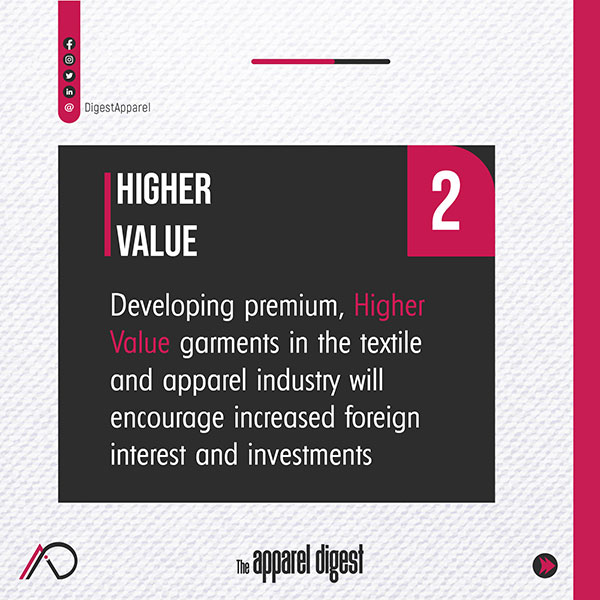Rafiad Ruhi
In recent years, the fashion industry, which is one of the most dynamic and expansive sectors in the world, has been subjected to heightened scrutiny. Millions of individuals from a variety of origins and regions are impacted by its extensive impact. The fashion industry has been subjected to criticism for its environmental degradation, labor exploitation, and lack of transparency, despite its substantial contribution to global economic development. As these issues become increasingly apparent, there has been an increase in the demand for accountability within the fashion industry. This essay investigates the concept of accountability in the fashion industry, focusing on its environmental, social, and ethical aspects, as well as the methods by which the industry can progress toward a more responsible future.

The fashion industry’s substantial environmental impact is one of the most pressing concerns it faces. The environmental crisis has been further exacerbated by fast fashion, which is defined by its low-cost apparel and mass production. The industry is accountable for approximately 10% of global carbon emissions and utilizes substantial quantities of water and natural resources. Moreover, the disposal of unsold stock, pollution from dyeing processes, and the discharge of microplastics from synthetic fabrics all contribute to significant ecological damage.
Accountability commences with transparency in supply chains to resolve this issue. It is imperative that brands disclose the environmental impact of their operations, the resources used, and the location and method of production of their products. This information is becoming more and more sought after by consumers, who are encouraging brands to implement sustainable practices, including:
– Utilizing materials that are either organic or recycled.
– Reducing water consumption in the production process, Minimizing waste through circular fashion models such as resale, upcycling, and repair.
Patagonia and Stella McCartney are exemplary companies that prioritize sustainability and advocate for eco-conscious fashion. Nevertheless, in order to achieve pervasive environmental accountability, it is necessary to implement industry-wide changes, such as more stringent regulations on resource usage, emissions, and waste management.

The fashion industry’s labor practices, particularly in developing countries, have garnered attention for their exploitation. In regions where labor laws are either feeble or inadequately enforced, reports of sweatshops, child labor, and unsafe working conditions are prevalent. The 2013 Rana Plaza catastrophe in Bangladesh, which resulted in the deaths of over 1,100 garment workers as a result of hazardous building conditions, underscored the pressing necessity for increased social accountability within the industry.
Numerous fashion brands delegate production to nations with inexpensive labor, frequently disregarding the unethical working conditions in which their products are manufactured. This outsourcing strategy enables organizations to optimize profits while simultaneously avoiding direct accountability for labor exploitation. Nevertheless, accountability necessitates that brands assume responsibility for their entire supply chain, guaranteeing that workers are compensated equitably, work in secure environments, and are not subjected to forced or child labor.
The objective of the proliferation of social certification programs, including the Ethical Trading Initiative (ETI) and Fair Trade, is to guarantee that brands comply with ethical labor standards. These initiatives are positive strides; however, the industry still necessitates more stringent enforcement of labor laws and greater transparency. A critical role is also played by consumers in ensuring that brands respect human rights by supporting companies that maintain equitable labor practices.
Transparency in marketing, pricing, and product integrity are all components of ethical accountability in fashion, in addition to environmental and social concerns. “Greenwashing” is a widespread practice in which numerous brands make false claims about their environmental practices in order to appeal to environmentally conscious consumers. Consumer distrust is the result of this lack of honesty, which undermines genuine efforts toward sustainability.
Ethical accountability is contingent upon transparency. It is imperative that brands furnish transparent, verifiable information regarding their sustainability initiatives, production methods, and procurement. Consumers have acquired valuable instruments to evaluate the accountability of brands, such as the Fashion Transparency Index, which grades companies according to the extent of transparency in their operations.
Technology can be instrumental in guaranteeing transparency. For instance, blockchain is currently being investigated as a method of monitoring products from the primary material to the final product, thereby enabling consumers and regulators to verify claims of ethical sourcing and production. The fashion industry will be compelled to become more accountable to its consumers and stakeholders through the implementation of honest communication and increased transparency.
Although fashion brands are primarily accountable, consumers and governments also play critical roles in promoting change. Consumer cognizance is increasing, as an increasing number of individuals are choosing ethical brands and considering the environmental and social consequences of their purchases. This transition in consumer behavior is evidenced by the emergence of movements such as “slow fashion,” which promote more conscientious consumption.
Additionally, it is imperative that governments establish and enforce more stringent regulations concerning the industry’s environmental and labor practices. Extended producer responsibility (EPR) is a policy measure that can encourage brands to pursue more sustainable practices by holding companies accountable for the entire lifecycle of their products, including disposal.
The fashion industry’s environmental, social, and ethical challenges necessitate a collective response from brands, consumers, and governments. Accountability is no longer an option; it is a necessity. The fashion industry can progress toward a future in which profitability is not associated with the detriment of human rights or the health of the planet by prioritizing transparency, implementing sustainable practices, and ensuring equitable labor conditions. Although the path to complete accountability is lengthy and intricate, the actions being implemented today will significantly influence the industry of the future.

